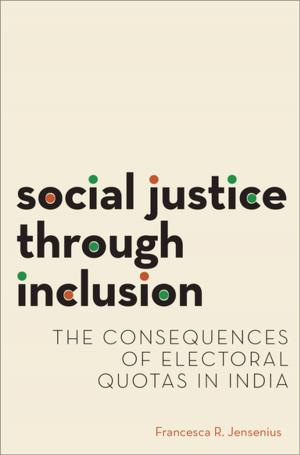Storming the World Stage
The Story of Lashkar-e-Taiba
Nonfiction, Social & Cultural Studies, Political Science| Author: | Stephen Tankel | ISBN: | 9780190238032 |
| Publisher: | Oxford University Press | Publication: | January 16, 2014 |
| Imprint: | Oxford University Press | Language: | English |
| Author: | Stephen Tankel |
| ISBN: | 9780190238032 |
| Publisher: | Oxford University Press |
| Publication: | January 16, 2014 |
| Imprint: | Oxford University Press |
| Language: | English |
Lashkar-e-Taiba is among the most powerful militants groups in South Asia and increasingly viewed as a global terrorist threat on par with al-Qaeda. Considered Pakistan's most powerful proxy against India, the group gained public prominence after its deadly ten-person suicide assault on Mumbai in November 2008. By the time the last Lashkar terrorist was dead after nearly 60 hours, it appeared the world was facing a new menace. Boasting transnational networks stretching across several continents, there has been serious debate since 9/11 of whether Lashkar is an al-Qaeda affiliate. The deliberate targeting of Westerners and Jews during the Mumbai attacks raised questions about whether Lashkar was moving deeper into al-Qaeda's orbit and perhaps on a trajectory to displace Osama bin Laden's network as the next major global jihadi threat. Lashkar's expansion has serious security implications for India, Pakistan, Europe and the United States and its activities threaten to damage US-Pakistan relations. Despite growing calls for action, Pakistan is yet to take any serious steps toward dismantling Lashkar for fear of drawing it further into the insurgency raging there and because of its continued utility against India. More than a militant outfit, Lashkar also controls a vast infrastructure that delivers necessary social services to the Pakistani populace, making it all the more difficult to dismantle. Storming the World Stage traces the evolution of Lashkar-e-Taiba over more than two decades to illustrate how the group grew so powerful and to assess the threat it poses to India, the West and to Pakistan itself. The first English-language book ever written about Lashkar, it draws on in-depth field research, including interviews with senior Lashkar leaders, rank-and-file members, and officials of the Pakistani security services--some of who have helped nurture the group over the years.
Lashkar-e-Taiba is among the most powerful militants groups in South Asia and increasingly viewed as a global terrorist threat on par with al-Qaeda. Considered Pakistan's most powerful proxy against India, the group gained public prominence after its deadly ten-person suicide assault on Mumbai in November 2008. By the time the last Lashkar terrorist was dead after nearly 60 hours, it appeared the world was facing a new menace. Boasting transnational networks stretching across several continents, there has been serious debate since 9/11 of whether Lashkar is an al-Qaeda affiliate. The deliberate targeting of Westerners and Jews during the Mumbai attacks raised questions about whether Lashkar was moving deeper into al-Qaeda's orbit and perhaps on a trajectory to displace Osama bin Laden's network as the next major global jihadi threat. Lashkar's expansion has serious security implications for India, Pakistan, Europe and the United States and its activities threaten to damage US-Pakistan relations. Despite growing calls for action, Pakistan is yet to take any serious steps toward dismantling Lashkar for fear of drawing it further into the insurgency raging there and because of its continued utility against India. More than a militant outfit, Lashkar also controls a vast infrastructure that delivers necessary social services to the Pakistani populace, making it all the more difficult to dismantle. Storming the World Stage traces the evolution of Lashkar-e-Taiba over more than two decades to illustrate how the group grew so powerful and to assess the threat it poses to India, the West and to Pakistan itself. The first English-language book ever written about Lashkar, it draws on in-depth field research, including interviews with senior Lashkar leaders, rank-and-file members, and officials of the Pakistani security services--some of who have helped nurture the group over the years.















